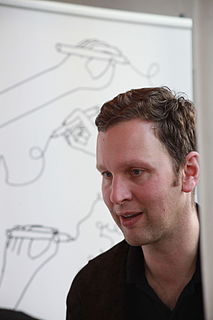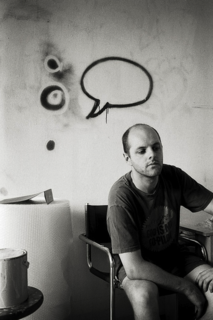A Quote by Henry Moore
Clever people can copy the handwriting of an artist - it's like forging a person's signature.
Quote Topics
Related Quotes
Lux’s frequent forged excuses from phys. Ed. She always used the same method, faking the rigid t’s and b’s of her mother’s signature and then, to distinguish her own handwriting, penning her signature, Lux Lisbon, below, the two beseeching L’s reaching out for each other over the ditch of the u and barbed-wire x.
For me, when we came out with a TV show, my HBO show, so much of the feedback was, "How do I do it?" And my response was always the same: "Just make something." Stop talking about it. You do in a way that the work takes on a life of its own. Like the "Signature" series [(2008), in which the artist trekked across the United States in the shape of his own signature] was a simple concept that became this story about the people you met along the way.
Copy is not written. If anyone tells you ‘you write copy’, sneer at them. Copy is not written. Copy is assembled. You do not write copy, you assemble it. You are working with a series of building blocks, you are putting the building blocks together, and then you are putting them in certain structures, you are building a little city of desire for your person to come and live in.
Mr. [Aldous] Huxley has been the alarming young man for a long time, a sort of perpetual clever nephew who can be relied on to flutter the lunch party. Whatever will he say next? How does he think of those things? He has been deplored once or twice, but feeling is in his favor: he is steadily read. He is at once the truly clever person and the stupid person's idea of the clever person; he is expected to be relentless, to administer intellectual shocks.
I envied women with signature hair-dos, signature perfumes, signature sign-offs. Novelists who tell Vogue Magazine: “I can’t live without my Smythson notebook, Pomegranate Noir cologne by Jo Malone and Frette sheets”. In the grip of madness, materialism begins to look like an admirable belief system.
I have a way of filming things and staging them and designing sets. There were times when I thought I should change my approach, but in fact, this is what I like to do. It's sort of like my handwriting as a movie director. And somewhere along the way, I think I've made the decision: I'm going to write in my own handwriting.






































